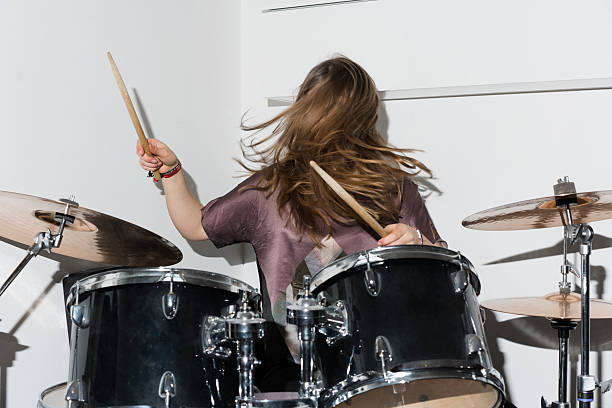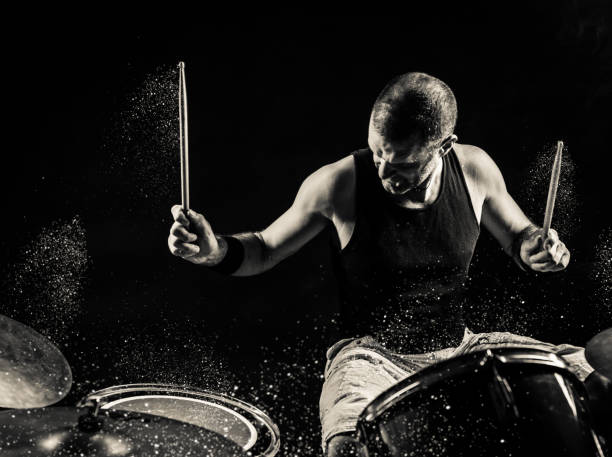Drumming is one of the most physically demanding roles in the music industry. A drummer’s ability to react quickly, maintain precise timing, and coordinate complex rhythms showcases exceptional reflexes. Whether performing live, recording in the studio, or improvising, drummers consistently demonstrate sharp mental and physical responses. In this article, we explore why drummers have the best reflexes in music and how they refine their skills over time.

The Science Behind a Drummer’s Reflexes
Drumming engages multiple areas of the brain simultaneously. It requires quick decision-making, split-second hand-eye coordination, and precise limb control. Neuroscientific research suggests that drummers have stronger connectivity between the left and right hemispheres of the brain, enhancing motor skills and reflex speed.
How Drumming Trains Reflexes
- Rapid Hand and Foot Movements – Drummers must execute fast-paced beats, fills, and polyrhythms, training their muscles to react instantaneously.
- Improved Reaction Time – Drumming teaches musicians to anticipate changes in rhythm, react to bandmates, and stay locked into the tempo.
- Motor Skill Development – Continuous practice strengthens fine motor skills, improving precision and reducing lag time between thought and action.
- Enhanced Brain Plasticity – Drumming strengthens neural pathways, leading to quicker cognitive responses and increased adaptability.
How Drummers Train Their Reflexes
Drummers don’t just develop great reflexes overnight—it takes dedicated training and conditioning. Here are some essential methods drummers use to sharpen their reaction time:
1. Practicing with a Metronome
A metronome helps drummers develop perfect timing and rapid adjustments. Playing to different BPMs (beats per minute) challenges their ability to stay consistent while reacting to tempo shifts.
2. Playing with Faster Rhythms
Speed training is crucial for improving reflexes. Drummers gradually increase their playing speed using rudiments, fills, and double bass pedal exercises to strengthen their response time.
3. Engaging in Hand and Foot Drills
Dedicated hand and foot drills help drummers gain better coordination and faster reaction speeds. Exercises like single strokes, double strokes, and paradiddles boost muscle memory.
4. Incorporating Polyrhythms
Polyrhythms train drummers to process multiple rhythmic patterns at once, strengthening their ability to react to complex changes in music.
5. Playing Along with Backing Tracks
Playing alongside recorded tracks forces drummers to adjust in real time, mimicking the unpredictability of live performances.
The Role of Reflexes in Live Performances
In a live setting, drummers must react instantly to changes in dynamics, tempo fluctuations, or mistakes by band members. Their sharp reflexes allow them to:
- Recover from Mistakes Quickly – If a beat is missed, drummers can immediately correct themselves without disrupting the flow.
- Adjust to Improvised Sections – Many drummers play in bands where improvisation is key. Quick reactions help them match sudden shifts in the music.
- Stay in Sync with Other Musicians – Drummers serve as the backbone of the band, keeping everyone on beat and adjusting as needed.
How Reflex Training Benefits Other Areas
Beyond drumming, strong reflexes contribute to a drummer’s overall physical and mental well-being. Understanding these are an important answer to the question on Why Drummers Have the Best Reflexes in Music. Some additional benefits include:
- Better Hand-Eye Coordination – Useful for everyday tasks, sports, and other musical instruments.
- Increased Focus and Concentration – Drummers develop heightened cognitive skills that can help in various aspects of life.
- Faster Decision-Making – Drumming trains quick thinking, which translates into better problem-solving abilities.
FAQs
1. Why do drummers have faster reflexes than other musicians?
Drumming requires continuous, high-speed limb movements and split-second adjustments, making drummers more reflexive than other instrumentalists.
2. Can non-drummers improve their reflexes through drumming exercises?
Yes! Drumming drills improve hand-eye coordination, reaction speed, and cognitive function, making them beneficial for anyone.
3. How long does it take to develop strong reflexes as a drummer?
With consistent practice, drummers can see noticeable improvements in reflexes within a few months, but mastery takes years of dedicated training.
4. Are there specific exercises to improve reflexes outside of drumming?
Yes! Activities like speed bag training, video games, and sports such as table tennis can complement drumming reflex development.
Drummers possess some of the best reflexes in the music industry due to the physical and mental demands of their craft. Through rigorous training, fast-paced playing, and constant adaptation, they develop unparalleled reaction times. Whether in a live setting or a studio, drummers are always prepared to adjust on the fly, making them the rhythmic backbone of any musical performance.
